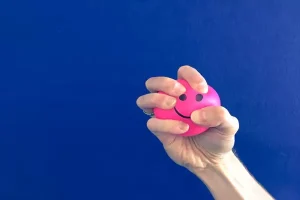? What is the smartest age
- تاریخ 06/18/2025

در صورت پخش نشدن فایل صوتی لطفا فیلتر شکن خود را روشن کنید.
فهرست مطالب
What is the smartest age in the world ?
Perhaps a day of friendly competition will lead us to the answer. Tomorrow’s the annual Brain Clash—ten teams of two competing in a decathlon of mental challenges, trivia competitions, and puzzles. I’ve been training all year. I’ll need to pick the smartest, most capable teammate.
I’ve narrowed down the roster. First, we have Gabriela. She may only be 8, but don’t underestimate her! She’s fluent in two languages and is the ultimate outside-the-box thinker. Then there’s Ama. She can recite 100 digits of pi, designs satellites for a living, and bakes a perfect soufflé.
Or I could go with Mr. Taylor. He’s the best chess player in the neighborhood, not to mention he’s competed in over 20 Brain Clashes and is a five-time champion! I’m not sure who to pick!
Who’s the smartest? Which of these teammates should Amir choose for tomorrow’s contest and why? Of course, it depends. While intelligence is often associated with things like IQ tests, these assessments fail to capture the scope and depth of a person’s varied abilities.
So instead, we’ll break down the idea of “smart” into categories like creativity, memory, and learning and explore when the brain’s best at each of them. Let’s start at the very beginning.
In the first few years of life, your brain undergoes incredible rapid growth, called synaptogenesis, where more than 1 million new neural connections are formed every second. As the brain develops, it goes through a pruning process. Based on your experience and environment, used connections are strengthened and unused connections are removed.
Frequently used neuronal pathways are myelinated, wrapped in a layer of insulation, allowing information to travel faster. This creates a more efficient, fine-tuned brain. But this brain remodeling happens within and between brain regions at different times, allowing different skills to flourish at different ages.
For example, in childhood, brain regions involved in language learning develop quickly, which is why many children can learn and master multiple languages. Yet the prefrontal cortex, a brain region responsible for cognitive control and inhibition, is slower to develop.
As a result, some young children may struggle with strategic games, such as chess or checkers, which require constant concentration, planning, and abstract thought. At the same time, children tend to be more flexible, exploration-based learners. They often use more creative approaches when finding solutions to riddles and are, on average, less afraid to make mistakes.
But adults have their own unique set of abilities. Adults benefit from a well-developed prefrontal cortex, allowing them to better execute skills that require learning, focus, and memory, making them quick and efficient puzzle solvers or crossword masters.
Late in adulthood, these same skills may decline as the brain’s memory center, known as the hippocampus, shrinks. But there’s a reason for the phrase “older and wiser.” After a lifetime of learning, older adults have more knowledge to recall and utilize, making them excellent trivia partners.
Other factors that Amir should consider are his own strengths. As an adolescent, the prefrontal cortical regions of your brain are more developed than in childhood. This allows you to better navigate logic and math puzzles. Simultaneously, deep inside the brain, regions that are important in motivation and reward are developing even faster, driving teenagers like Amir to be curious and adventurous learners.
In many ways, you can think of the teenager as a jack-of-all-trades, with brains wired to seek out new experiences and learn quickly. You’re at a dynamic stage, where the choices you make and the skills you focus on can actually guide the development of your brain.
So, what’s the smartest age? There’s no single answer. It’s 8, 16, 25, 65, and everything in between; our brains have adapted to prioritize different skills at various ages to meet that stage of life’s challenges and demands. So, no matter who Amir picks, having an age-diverse team is a good strategy.
باهوشترین سن چیه؟
شاید یک روز رقابت دوستانه ما را به پاسخ برساند. فردا مسابقه سالانه «نبرد مغزها» برگزار میشود؛ ده تیم دونفره در یک دهگانه از چالشهای ذهنی، مسابقات اطلاعات عمومی و پازلها با هم رقابت میکنند. من تمام سال را تمرین کردهام. حالا باید باهوشترین و توانمندترین همتیمی را انتخاب کنم.
لیست گزینهها را محدود کردهام. اول، گابریلا را داریم. شاید فقط ۸ سالش باشد، اما دستکم نگیریدش! او به دو زبان مسلط است و یک متفکر خلاق و خارج از چارچوب. بعد، اما را داریم. او میتواند ۱۰۰ رقم از عدد پی را از حفظ بخواند، برای امرار معاش ماهواره طراحی میکند و سوفلهای بینقص میپزد. یا میتوانم آقای تیلور را انتخاب کنم. او بهترین شطرنجباز محله است و علاوه بر این، در بیش از ۲۰ نبرد مغزها شرکت کرده و پنج بار قهرمان شده! نمیدانم کدام را انتخاب کنم!
باهوشترین کیست؟ امیر برای مسابقه فردا کدام همتیمی را باید انتخاب کند و چرا؟ البته، این بستگی دارد. هوش معمولاً با چیزهایی مثل تستهای IQ مرتبط است، اما این ارزیابیها نمیتوانند گستردگی و عمق تواناییهای متنوع یک فرد را نشان دهند.
بهجای آن، مفهوم «باهوش» را به دستههایی مثل خلاقیت، حافظه و یادگیری تقسیم میکنیم و بررسی میکنیم که مغز در هر یک از این زمینهها در چه زمانی بهترین عملکرد را دارد. بیایید از همان ابتدا شروع کنیم.
در چند سال اول زندگی، مغز شما رشد سریعی به نام «سیناپتوژنز» را تجربه میکند، جایی که هر ثانیه بیش از یک میلیون اتصال عصبی جدید شکل میگیرد. با رشد مغز، فرآیندی به نام هرس اتفاق میافتد. بر اساس تجربه و محیط شما، اتصالات استفادهشده تقویت و اتصالات استفادهنشده حذف میشوند.
مسیرهای عصبی پراستفاده میلینه میشوند، یعنی با لایهای عایق پوشیده میشوند که باعث میشود اطلاعات سریعتر منتقل شوند. این فرآیند مغزی کارآمدتر و دقیقتری ایجاد میکند. اما این بازسازی مغز در زمانهای مختلف در مناطق مختلف مغز رخ میدهد و مهارتهای متفاوتی را در سنین مختلف شکوفا میکند.
برای مثال، در کودکی، مناطق مغزی مرتبط با یادگیری زبان بهسرعت رشد میکنند، به همین دلیل بسیاری از کودکان میتوانند چندین زبان را یاد بگیرند و به آنها مسلط شوند. اما قشر پیشپیشانی، که مسئول کنترل شناختی و مهار است، کندتر رشد میکند.
در نتیجه، برخی کودکان ممکن است در بازیهای استراتژیک مثل شطرنج یا چکرز که نیاز به تمرکز مداوم، برنامهریزی و تفکر انتزاعی دارند، مشکل داشته باشند. در عین حال، کودکان معمولاً یادگیرندگان انعطافپذیر و کاوشگری هستند. آنها اغلب از روشهای خلاقانهتری برای حل معماها استفاده میکنند و بهطور متوسط کمتر از اشتباه کردن میترسند.
اما بزرگسالان هم تواناییهای منحصربهفرد خودشان را دارند. بزرگسالان از قشر پیشپیشانی کاملاً رشدیافته بهره میبرند، که به آنها امکان میدهد مهارتهایی مثل یادگیری، تمرکز و حافظه را بهتر اجرا کنند و در حل پازلها یا جدولهای کلمات متقاطع سریع و کارآمد باشند.
در اواخر بزرگسالی، این مهارتها ممکن است به دلیل کوچک شدن مرکز حافظه مغز، یعنی هیپوکامپ، کاهش یابند. اما ضربالمثل «پیرتر، عاقلتر» بیدلیل نیست. پس از یک عمر یادگیری، بزرگسالان مسنتر دانش بیشتری برای یادآوری و استفاده دارند و شریکان عالی برای مسابقات اطلاعات عمومی هستند.
امیر باید نقاط قوت خودش را هم در نظر بگیرد. بهعنوان یک نوجوان، مناطق قشری پیشپیشانی مغز شما نسبت به کودکی رشد بیشتری کردهاند. این به شما امکان میدهد بهتر با پازلهای منطقی و ریاضی کنار بیایید. همزمان، در عمق مغز، مناطقی که در انگیزه و پاداش نقش دارند، حتی سریعتر رشد میکنند و باعث میشوند نوجوانانی مثل امیر یادگیرندگانی کنجکاو و ماجراجو باشند.
بهنوعی، میتوان نوجوان را یک همهفنحریف دانست، با مغزی که برای جستجوی تجربیات جدید و یادگیری سریع طراحی شده است. شما در مرحلهای پویا هستید، جایی که انتخابهایتان و مهارتهایی که روی آنها تمرکز میکنید، میتوانند رشد مغزتان را هدایت کنند.
پس باهوشترین سن کدام است؟ پاسخ واحدی وجود ندارد. ۸ سال، ۱۶ سال، ۲۵ سال، ۶۵ سال و هر سنی بین اینها؛ مغز ما طوری تکامل یافته که در سنین مختلف، مهارتهای متفاوتی را برای پاسخ به چالشها و نیازهای آن مرحله از زندگی در اولویت قرار دهد. بنابراین، هر که را امیر انتخاب کند، داشتن تیمی با تنوع سنی استراتژی خوبی است.
شما همچنین ممکن است دوست داشته باشید

How Japan saved its biggest city

? Why do you want to squeeze cute things

